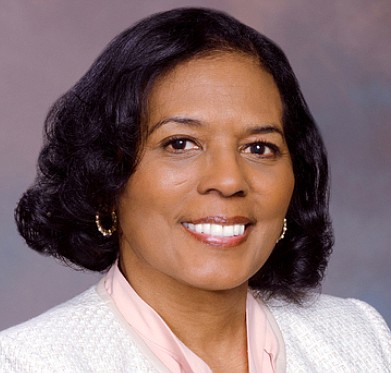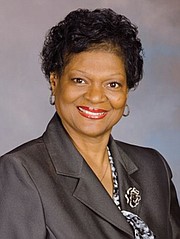General Assembly wraps up with extraordinary changes
Jeremy M. Lazarus | 3/13/2020, 6 a.m.
Tens of thousands of the lowest paid workers in Virginia are headed for a raise of at least $2.25 an hour next year — their first in 12 years.
Symbolizing the sea change in Virginia policies and laws that resulted from the Democratic takeover of the legislature, the General Assembly majority overcame an impasse between the House and Senate as well as the traditional Republican blockade to make it happen.
Democratic majorities approved increasing the state minimum wage to $9.50 an hour effective Jan. 1, 2021, with additional increases in the following years to raise the wage to $12 an hour by 2023.
The vote came Saturday as the General Assembly moved to close out a session that lived up to its historic billing — although the 40 senators and 100 delegates were to return Thursday to complete work on the state budget and other matters before adjourning.
Following in the footsteps of at least 28 other states, the Virginia increase would be the first hike in the minimum wage since 2009, when the federal minimum was raised to $7.25 an hour. The bill, however, falls short of advocates’ hopes of gaining a $15 an hour minimum wage and eliminates farm laborers as beneficiaries.
The passage of the increase, along with other changes, reflects the influence of the 23 members of the Virginia Legislative Black Caucus, whose four senators and 19 House members were at the forefront on many of the session’s issues.
Seven members played key roles as chairs of powerful committees.
Hampton Delegate Jeion A. Ward, a VLBC member and chair of the House Commerce and Labor Committee, led the House drive for the minimum wage increase.
Nonetheless, in ways large and small — including an increase in the state gas tax to pay for road improvements and support public transit — Virginia residents will begin to feel the impact of the slew of legislation that Gov. Ralph S. Northam is expected to sign and that largely will become effective on July 1.
For example, under VLBC-led legislation from Richmond Delegate Delores L. McQuinn that Gov. Northam has signed into law, people no longer can be fired, demoted or suspended from jobs or from school for wearing braids, dreadlocks, Afros or other hairstyles that employers and authority figures deem unacceptable.
The assembly also passed legislation giving the LGBTQ community protections against discrimination on the job, in schools and in public policy for the first time.
The legislature pushed to beef up hate crime laws, granted the attorney general new authority to prosecute hate crimes and, for the first time, gave individuals a right to sue under state law for racial or gender discrimination.
Also, applicants for apartments or other rentals no longer will face automatic rejection from landlords and owners if a portion of the rent is to be paid through a government voucher. Richmond Delegate Jeff M. Bourne, a VLBC member, spearheaded the bill that will bar discrimination against people receiving rental subsidies.
For marijuana users, the legislature voted to end arrests for possession of small amounts, replacing the criminal charge with a $25 civil fine. A VLBC member, Richmond Sen. Jennifer L. McClellan, a potential gubernatorial candidate, also gained approval of a study that could lead to legalization, which advocates had hoped for this session.
Also, the legislature gave women a boost with the approval of the Equal Rights Amendment that would give females equal standing in the U.S. Constitution. The Democratic majority also eliminated Republican-established barriers for women seeking abortions.
Under bills pushed by House Majority Leader Charniele Herring of Alexandria, a VLBC member, local governments gained authority to take down Confederate statues that they own. Also, voters no longer will need to show a photo ID to cast a ballot and also will be able to vote up to 45 days ahead of Election Day without providing any excuse under legislation that cleared both houses.
The wave of change included passage of a consumer protection bill from Henrico Delegate Lamont Bagby, chairman of the VLBC. That legislation would end the practice of payday and vehicle title lenders being able to charge interest rates rate of 200 to 400 percent on such short-term loans in Virginia, creating a debt-trap for borrowers.
Also, the legislature, with bipartisan support, eliminated a law that required suspension of a driver’s license for people who do not or cannot pay court costs and fines.
On climate change, the General Assembly passed the sweeping Clean Economy Act, which creates a general mandate to eliminate coal and other carbon-emitting fuels to generate electricity by 2045 in Dominion Energy’s territory and by 2050 in Appalachian Power’s western territory.
Approved legislation also clears the way for more people, schools and businesses to install rooftop solar panels and slightly opens the door to competition from third parties to provide electricity from renewable sources.
The General Assembly, for the first time, also made environ- mental justice a state policy to protect African-American and other minority communities from being the preferred locations for landfills, power plants and environmentally hazardous factories and developments.
In criminal justice reform, the legislature pushed the threshold for a felony theft charge to $1,000, passed bills that would al- low more state prisoners to apply for parole and required a state agency to begin collecting data on bail. Sen. McClellan also gained approval for her bill to generally require police to record interrogations of suspects in a bid to reduce false confessions.
“This session has been historic in the extraordinary progress that was made for people in every corner of the Commonwealth,” House Speaker Eileen Filler-Corn of Northern Virginia said. Voters who awarded Democratic majorities wanted “swift, impactful action,” she said, “and we have delivered.”








